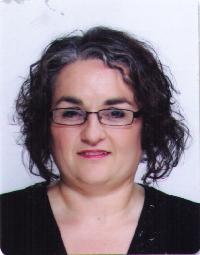The Euro: Countable or Uncountable? Thread poster: Edward Potter
|
|---|
Edward Potter 
Spain
Local time: 18:28
Member (2003)
Spanish to English
+ ...
I have seen many people use the new euro currency as a mass noun, as if it were a liquid or coffee grounds. I have also read a published article on the subject by a professional translator which corroborates this usage.
So, my question is whether this is indeed the correct usage or should the plural form for the new euro be the same as dollars, pounds, francs and pesos, as a countable noun?
Just wondering.
Edward
| | | | | Hey! Get the Oats Back into Your Horse Sense! | Feb 10, 2003 |
One euro, two euros, three eurice...RIGHT?
| | | | | It's use is supposed be consistent with other currencies.. | Feb 10, 2003 |
..but would you say \"it costs three pounds/francs/pesos fifty pence\" or \"it costs three pound/franc/peso fifty pence\".
According to http://europa.eu.int/euro/html/rubrique-cadre5.html?pag=rubrique-defaut5.html|lang=5|rubrique=221|chap=15 the EU decided it\'s invariable - \"Guidelines on the use of the euro, issued via the ... See more ..but would you say \"it costs three pounds/francs/pesos fifty pence\" or \"it costs three pound/franc/peso fifty pence\".
According to http://europa.eu.int/euro/html/rubrique-cadre5.html?pag=rubrique-defaut5.html|lang=5|rubrique=221|chap=15 the EU decided it\'s invariable - \"Guidelines on the use of the euro, issued via the Secretariat-General, state that the plurals of both \'euro\' and \'cent\' are to be written without \'s\' in English. Do this when amending or referring to legal texts that themselves observe this rule. Elsewhere, and especially in documents intended for the general public, use the natural plural with \'s\' for both terms.\"
In other words - either is fine! It depends on the document. ▲ Collapse
| | | | | What do the Irish say? | Feb 10, 2003 |
As Ireland is currently the only English speaking country participating in the Euro Experiment, perhaps they are in a unique position to tell the rest of us how it all works out in practice. Any Irish readers out there?
As a Brit living in Euroland I must admit that I generally use the term as I would Pounds - So, talking about prices, I would say €6:50 (Six Euro Fifty) - but I would say \"I won twenty-five Euros in the lottery, this week!\"
Thanks for... See more As Ireland is currently the only English speaking country participating in the Euro Experiment, perhaps they are in a unique position to tell the rest of us how it all works out in practice. Any Irish readers out there?
As a Brit living in Euroland I must admit that I generally use the term as I would Pounds - So, talking about prices, I would say €6:50 (Six Euro Fifty) - but I would say \"I won twenty-five Euros in the lottery, this week!\"
Thanks for bringing this up - I hadn\'t realised there was even a controversy and it is worth thinking about!
Cheers,
Berni ▲ Collapse
| | |
|
|
|
Ken Cox 
Local time: 18:28
German to English
+ ...
| my two cent(s) worth | Feb 10, 2003 |
As a native English speaker but not a native European, my feeling is that the EC has essentiailly ridden roughshod over common English usage in the interest of uniformity. As previously noted, in the UK the usage depends on the situation. For instance, it is perfectly natural to say \'he spent 50 quid on flowers\', but it would sound a bit strange to say \' he spent 50 pound (or \'50 euro\') on flowers\' I\'m rather curious what the style guides of the major publishers will have to say about th... See more As a native English speaker but not a native European, my feeling is that the EC has essentiailly ridden roughshod over common English usage in the interest of uniformity. As previously noted, in the UK the usage depends on the situation. For instance, it is perfectly natural to say \'he spent 50 quid on flowers\', but it would sound a bit strange to say \' he spent 50 pound (or \'50 euro\') on flowers\' I\'m rather curious what the style guides of the major publishers will have to say about this.
In North America, the \'s\' is always used in the plural (dollars and cents are countable, in the terms of the original question).
My suggestion is that if you are translating for an EU client in a formal/legal context, use \'euro\'; otherwise use what feels best (and for NA, \'euros\' will always feel best).
▲ Collapse
| | | | Pablo Martínez (X)
Spain
Local time: 18:28
English to Spanish
I don´t think it is a matter of whether countable or uncountable.
In the scientific language you don´t use plurals for the units and same applies to the names of the currencies as I understand.
Just take a 20 Euro note from your wallet and see what it states: 20 Euro, rather than 20 Euros... 
Pablo
| | | | | ¡Q buena tu respuesta! | Feb 13, 2003 |
Quote:
On 2003-02-11 17:21, pma wrote:
I don´t think it is a matter of whether countable or uncountable.
In the scientific language you don´t use plurals for the units and same applies to the names of the currencies as I understand.
Just take a 20 Euro note from your wallet and see what it states: 20 Euro, rather than 20 Euros... 
Pablo
... See more
Quote:
On 2003-02-11 17:21, pma wrote:
I don´t think it is a matter of whether countable or uncountable.
In the scientific language you don´t use plurals for the units and same applies to the names of the currencies as I understand.
Just take a 20 Euro note from your wallet and see what it states: 20 Euro, rather than 20 Euros... 
Pablo
Toda la lógica del mundo. Me he puesto a mirar un billete y tienes razón, pero desde luego en español nunca utilizarías billete de 20 euro, sino euros. Habría que verlo en otros billetes, aunque no me fiaría mucho del Banco de España o el US Treasury. No creoque consulten conb lingüistas a la hora de emitir.
Ah, y por si no lo sabías, el nuevo mote o slang word para euro es eypo, que tb viene en el billete.
Un saludo
Luis ▲ Collapse
| | | | Heinrich Pesch 
Finland
Local time: 19:28
Member (2003)
Finnish to German
+ ...
| Every nation decides | Mar 20, 2003 |
As with pronounciation for the word Euro every language or nation will decide, if the word must have endings.
In Finnisch both euro and cent (sentti) are declined normally.
Last year an Austrian customer was wondering, why in my Finnish text the prices were sometimes \"euro\", sometimes \"euroa\", or eurolla, euroon. Finns cannot do without declination, an undeclined word would be a stranger in its context. Cents by the way are abbreviated \"snt\", because \"c\" is not used ... See more As with pronounciation for the word Euro every language or nation will decide, if the word must have endings.
In Finnisch both euro and cent (sentti) are declined normally.
Last year an Austrian customer was wondering, why in my Finnish text the prices were sometimes \"euro\", sometimes \"euroa\", or eurolla, euroon. Finns cannot do without declination, an undeclined word would be a stranger in its context. Cents by the way are abbreviated \"snt\", because \"c\" is not used in the Finnish language. ▲ Collapse
| | |
|
|
|
Sarah Jamieson 
United Kingdom
Local time: 17:28
Member (2019)
Spanish to English
+ ...
This thread has been really helpful for my work. Super thanks!
| | | | Tom in London
United Kingdom
Local time: 17:28
Member (2008)
Italian to English
| Euro, not Euros | Oct 2, 2019 |
Berni Armstrong wrote:
As Ireland is currently the only English speaking country participating in the Euro Experiment, perhaps they are in a unique position to tell the rest of us how it all works out in practice. Any Irish readers out there?
As a Brit living in Euroland I must admit that I generally use the term as I would Pounds - So, talking about prices, I would say €6:50 (Six Euro Fifty) - but I would say \"I won twenty-five Euros in the lottery, this week!\"
Thanks for bringing this up - I hadn\'t realised there was even a controversy and it is worth thinking about!
Cheers,
Berni
I'm Irish. In Ireland it is normal to say (for example) "55 euro" not "55 euros".
| | | |
Pablo Martínez (X) wrote: I don´t think it is a matter of whether countable or uncountable. In the scientific language you don´t use plurals for the units and same applies to the names of the currencies as I understand. Just take a 20 Euro note from your wallet and see what it states: 20 Euro, rather than 20 Euros...  Pablo
Not true.
*French only*
You are allowed to add "s" for plurial.
1 euro, 150 euros
So, it depends on the country where you are.
| | | | John Fossey 
Canada
Local time: 12:28
Member (2008)
French to English
+ ...
| It definitely depends on the country | Oct 2, 2019 |
The Canadian Style says this about it:
The euro is the currency of many European Union member countries; euro is not capitalized. The plural spelling euros is standard (except in European Union legal documents, where the official plural is euro).
| | | | To report site rules violations or get help, contact a site moderator: You can also contact site staff by submitting a support request » The Euro: Countable or Uncountable? | Protemos translation business management system | Create your account in minutes, and start working! 3-month trial for agencies, and free for freelancers!
The system lets you keep client/vendor database, with contacts and rates, manage projects and assign jobs to vendors, issue invoices, track payments, store and manage project files, generate business reports on turnover profit per client/manager etc.
More info » |
| | Anycount & Translation Office 3000 | Translation Office 3000
Translation Office 3000 is an advanced accounting tool for freelance translators and small agencies. TO3000 easily and seamlessly integrates with the business life of professional freelance translators.
More info » |
|
| | | | X Sign in to your ProZ.com account... | | | | | |














